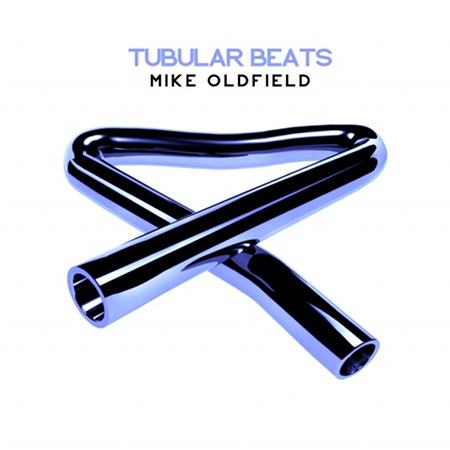
At age 19, Mike Oldfield composed, produced, and played a bunch of instruments on Virgin Records’ first release, Tubular Bells. That was 1973, and the album release coincided with its use of the ”Introduction” piece in the film, The Exorcist. Without that inclusion, it’s difficult to know whether Tubular Bells would have skyrocketed to iconic status in the pantheon on modern instrumental recordings. The effect The Exorcist had on audiences in 1973 was something I had second hand knowledge of. I was too young to see the film, but my parents, neighbors, and others in my orbit did, and were pretty freaked out by what they saw on the screen. So much so, when the instrumental was released as a single, it would conjure up images from the film, and consequently some people I knew couldn’t even listen to the song.
Flash forward to 2013, and we are presented with Tubular Beats, a remixed album from Mike Oldfield in collaboration with the German electronica duo, York. However, this is not a remix of Oldfield’s classic 1973 album. Rather, it’s a remix of selections from Oldfield’s entire catalogue. So while ”Tubular Bells” does end up in the spotlight, and gets the York remix treatment, the rest of the album is a tour through the years of Oldfield’s songs. Oh and I’m sorry to say that “Piltdown Man/Caveman” from side two of Tubular Bells did not make the cut for this remix album. But you can hear the original here:
Did the Oldfield/York collaboration result in anything remarkable? In a word, yes. If you’re a fan of electronica music, you’ll like the way the music moves from more chill/downbeat sounds to full on trance at times. Would this be played in clubs? Probably not. And that’s not because it lacks a danceable beat. Rather, it’s a little too complex and layered for that scene. Case in point: the ethereal quality to ”Let There Be Light.” The music evokes space travel — mostly because that’s the intention with the inclusion of commander Frank Borman’s reading from Genesis on Christmas Eve in 1968 during the Apollo 8 mission.
”To France” takes Maggie Reilly’s original vocals from the 1984 album, Discovery, and makes it sound like a new song. It’s upbeat and completely different from the more Celtic-influenced original version. The same for a selection from Ommadawn. Shorn of much of its original instrumentation and given the ”club” gloss, the song is pleasantly transformed from a more meditative piece to a thumping groove. And so it goes for song after song. There are some who would think this electronica make over of Oldfield’s work is tantamount to musical heresy. I mean why take music that appealed to the ”headphones-in-the-dark” crowd and layer in beats, extra choral synth, and delays — in essence, trying to get the stoner kid out of his bedroom and on the dance floor? It sounds like a mismatch on paper, but it works. Breathing new life into Oldfield’s work is something that, to my knowledge, no one in his fan base asked for. He’s certainly earned his place in music history, has an impressive body of work, and has secured his place just below Vangelis as a noted musician of the new age. This current stop in the club scene, while novel and appealing, does run the risk of sounding dated in about five years. For now, though, the tubular beats go on.





Comments